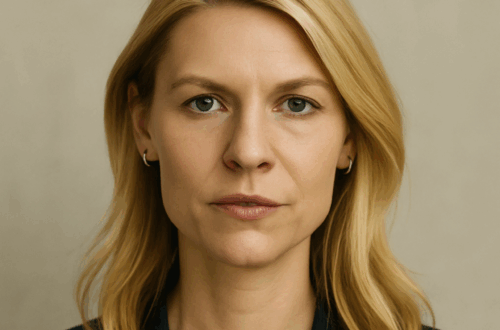Emma Thompson has always carried a rare quality on screen: a luminous intelligence that never dims, even when the characters she embodies are bruised, brittle, or teetering on collapse. For more than three decades, she has been one of Britain’s most versatile performers, an actress equally at home in the corseted wit of period drama, the messy humanity of modern comedy, and the quiet ache of characters who spend entire scenes thinking instead of speaking. Hers is a career built not on glamour or self-mythology, but on the simple conviction that storytelling matters and that the work should mean something.
Born into a family of performers, Thompson grew up in a household where comedy, language, and emotional precision were part of the furniture. That early exposure sharpened her instincts, giving her a distinct feel for the rhythm of dialogue and the emotional undercurrents that make a scene breathe. When she emerged in the late 1980s as a rising star of British television and film, her arrival felt less like a debut and more like a reclamation—a performer stepping into the form she was always meant to occupy.
Her international breakthrough came with her rich, steady performance in Howards End, a role that showed the world she could carry a film with warmth, clarity, and the kind of grounded strength critics often describe but rarely encounter. She followed it with The Remains of the Day, Sense and Sensibility, and a string of roles that demonstrated her fluency with emotional complexity. Even when the material called for restraint, Thompson supplied texture, layering the visible and invisible until the audience felt—as much as understood—what her characters endured.
Yet she has never been limited by drama. One of her greatest gifts is her comedic timing, a sharpness honed in her early sketch-comedy years and unleashed to full effect in roles that required a mix of wit and vulnerability. Her performances in contemporary films and television projects reveal an actress who understands the absurdity of modern life just as well as the tragedy of it. There is mischief in her, and generosity too.
Offscreen, Thompson has become something of a public conscience, unafraid to use her platform for causes she believes in. But she does so without self-importance, preferring honesty over grandstanding. In interviews, she speaks with the easy candor of someone who has long since stopped worrying about Hollywood’s expectations. She refuses to chase youth or perfection, choosing instead to age visibly, naturally, and with a grace rooted in self-knowledge rather than aesthetics. It is the kind of confidence that makes her not only admired but trusted.
In recent years, she has continued to evolve, embracing roles that reflect the shifting landscape of womanhood—stories about reinvention, desire, grief, courage, and the bittersweet business of living long enough to understand yourself. What makes her so magnetic is not simply talent, but perspective: she performs as someone who has lived, and who knows the cost of that living.
Emma Thompson’s legacy is still being written, but its shape is already clear. She is one of the rare performers whose career feels both complete and ever-expanding, a body of work rooted in empathy and curiosity. Her characters may inhabit different centuries, different countries, even different emotional worlds, but they all carry traces of the same soul—a restless, searching, fiercely human spirit.
And maybe that is why audiences continue to return to her, again and again. In a world increasingly loud with spectacle, Emma Thompson remains a quiet flame. Steady. Warm. Enduring in the way only the most honest artists can be.




